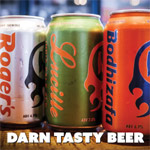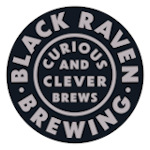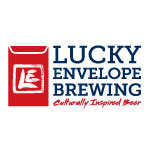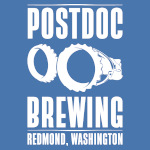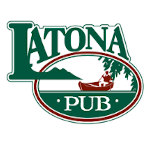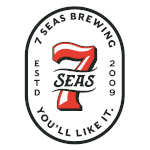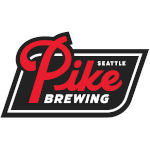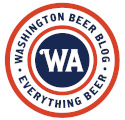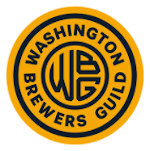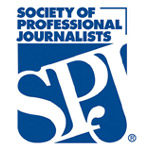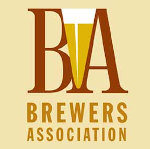We sit around the pub talking like we know it all. The longer we are there, the more we know and the less complex the issues become. It is human nature. Reducing complex issues to a few easily defended or easily defeated points allows us be experts. We all want to be certain in our convictions and oversimplification is a quick way to get there. When talking about baseball or beer styles it doesn’t matter too much: there are no real consequences. Oversimplification can also be insidious business. For example, politicians and political activists feed on our desire to reduce the most complex issues to a few simple words. They want us to stand up and cheer in favor of an issue or a candidate with the same rational forethought we use when we root for a particular football team.
Next Wednesday, September 21st at the Naked City Brewery and Taphouse you can actually enjoy a beer while you build a real understanding of a big issue: our state’s liquor laws.
Meaningful Misunderstanding
In recent years commercials on the radio and television have been filling our heads with endless clamoring about the state’s involvement in the liquor business: paid efforts to help us oversimplify the issue in one direction or another. Now, once again, we are being asked to vote on something we do not fully understand: the dismantlement (at least partially) of Washington’s liquor control laws. You can have whatever opinion you like, but it should at least be an informed opinion and not one based on what you are hearing on the radio and television. Regardless of what the commercials say, it is not a transpicuous issue.
For the most part, the people on both sides of the issue (pretty much any issue) don’t want us to formulate a meaningful opinion. They just want us to vote one way or another because it suits their business, political, or personal interests. In the case of I-1183, formulating a meaningful opinion should start by actually understanding the laws as they exist. What’s more, you should understand how and why our current laws came into existence. What logic, what issues, and what reasons spawned our current laws? Are they still relevant? I’m sure that you think you know the answer to those questions already. Maybe you do. I sometimes think I understand all aspects of this issue, but then I take a deep breath and realize that I do not.
What is meant by the term control state? What is the intended and actual role of the three-tier distribution system? Why is central warehousing a big deal? These are the most basic questions that come to mind. If you cannot answer those questions, then you are far from informed. Yes, I admit that is just my opinion.
Once we all gain a meaningful understanding of this or any other issue it is perfectly fine if we hold different opinions. This is, after all, America. Our strength is our diversity. It is kind of like Darwinism applied to politics. To insure the strength of the American species, to maintain the health of the American herd, “we the people” need to be informed and not simply lured. It is our duty. It is our inalienable right.
Working together to form a better future
Next Wednesday, September 21st , you are invited to Naked City Brewery and Taphouse for what promises to be a very interesting and informative conversation. Organized and presented by Humanities Washington, this is the first in a series of events dubbed Think & Drink. Essentially, the events are moderated conversations on a topic that is interesting or provocative. This Think & Drink event will focus on the history and story behind our liquor laws.
In a message to the Washington Beer Blog, Zaki Abdelhamid (Programs Manager for Humanities Washington) said, “This event is presented in partnership with KCTS leading up to Ken Burns’ new film Prohibition. The event is titled The Politics Behind Your Pint featuring William Rorabaugh and Charles Finkel, and will be moderated Steve Scher [host of KUOW’s Weekday].”
Beer aficionados recognize Charles Finkel as the founder and owner of Pike Brewing. That is just one small piece of his resume. In 1978 Finkel founded Merchant Du Vin, which has grown into America’s largest craft beer importer. William Rorabaugh is an American historian, University of Washington professor, and author. Among his published works, The Alcoholic Republic: An American Tradition. Rorabaugh is a noted beer historian.
According to its website, Humanities Washington is a non-profit organization that promotes and provides programs based in the humanities. The organziation plays a critical role in addressing an immediate and growing crisis concerning community identity and understanding, respect for other perspectives, and the ability of communities to work together to shape a better future.
Think & Drink is a happy hour conversation series that promotes sharing ideas and new perspectives on provocative topics. Our inaugural discussion digs into the story behind our liquor laws and how they came to be. Speakers include:
- Steve Scher
Event moderator and host of KUOW’s Weekday - William Rorabaugh
University of Washington professor and author of “The Alcoholic Republic” - Charles Finkel
Founder/president of Pike Brewing Co.
When: 7 P.M., Wednesday, Sept. 21, 2011
Where: Naked City Brewery & Taphouse, 8564 Greenwood Ave. N., Seattle
Cost: Free
Questions? Email Zaki Abdelhamid at zaki@humanities.org








